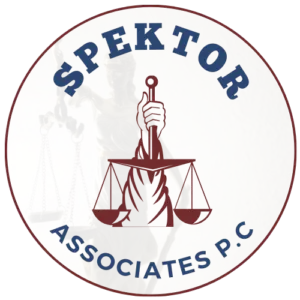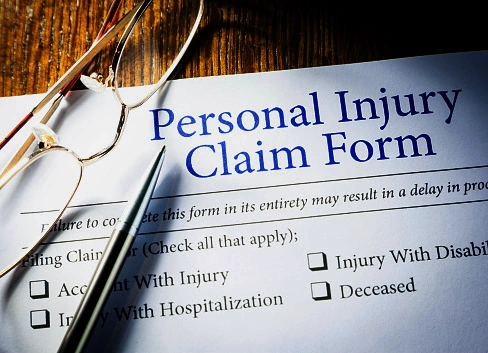Wrongful death can occur as a result of another party’s negligence or as a result of an accident. In either case, it is a tragic and unfortunate event that has taken the lives of family and friends.
Negligence and wrongful death are often confused as the same legal concept, but they are not. Both can have an impact on the outcome of a fatal accident case, but the terms are not interchangeable.
This article will explain the distinction between wrongful death accident vs negligence so that you can understand how it applies to your situation if you or someone you care about has been affected by this tragedy and needs to file a personal injury claim in New York.
Wrongful Death Accident or Negligence?
Wrongful death cases are classified into two types: One type of case involves an unplanned event that causes physical harm to a person.
The other type is negligence, which is a legal term for failing to exercise reasonable care. This can mean a variety of things in the context of wrongful death cases, such as car accidents, slip and fall accidents, medical malpractice, or even if a person’s home was poorly constructed and collapsed on them during a tornado.
What Is Negligence?
Negligence is defined as a breach of a person’s duty of care to another person. When someone fails to exercise ordinary care or protect another person from foreseeable risks of harm, this is considered a negligent act. When an accident involves negligence, determining who was at fault can be difficult and complex because multiple parties may be responsible for what happened.
Because they are easier to prove than accident-related deaths, most wrongful death claims are filed as negligence cases. Most states have statutes of limitations (time limits) for filing personal injury claims; however, there is no statute of limitations for filing a claim for personal injury resulting in someone’s death within one year of their death, whether intentional or unintentional.
Negligence may include:
- A car accident that causes injuries or death while driving under the influence (DUI) or beyond the speed limit.
- A car crash caused by texting while driving (distracted driving)
Proving Negligence in Car Accident
To prove that the negligent actions of another party injured you, your personal injury lawyer must show that:
- The other party had a legal duty of care to you. This means they had to exercise reasonable caution in their actions. A driver, for example, has a legal obligation to operate their vehicle safely and to pay attention while driving. If they fail to perform this duty, it may result in an auto accident (breaking the law).
- The failure of the other party to fulfill their legal duty of care resulted in your injuries. This can only occur if another person’s actions directly or indirectly caused your injuries due to circumstances beyond their control (an “act of God”).
What Is Considered Negligence in New York Law?
Negligence is defined as failing to exercise reasonable care. This means that you were negligent if you did not devote enough time and resources to ensuring that you did everything possible to prevent a situation from occurring.
In other words, negligence occurs when someone does something incorrectly or fails to do something correctly, resulting in harm or injury.
What is the Legal Duty of Care, and How Does It Affect a Personal Injury Case?
A legal duty of care is an obligation to take reasonable steps to protect others from foreseeable harm. Judges use this as a criterion to determine whether or not someone was negligent.
For example, you have a duty of care not to drive too fast or too close to another vehicle that is attempting to merge into traffic. If you fail to fulfill this duty and cause an accident, you will be found negligent in court.
How to Establish Negligence, Reasonable Person, and Reasonable Speed Standards
To establish negligence in a wrongful death case, personal injury lawyers must prove the following:
- A duty of care was owed by someone to the deceased;
- That person breached this duty of care; and
- That their breach caused harm to your loved one.
For example, if you are walking down the street and trip over a crack in the sidewalk because there is no warning sign, there is no negligence.
On the other hand, if a store owner is aware of a dangerous condition on their property but fails to repair it because they do not want to spend money repairing it or they do not believe anyone will be injured as a result, and someone is injured as a result, the store owner may be held liable for those injuries based on negligence.
The standard set by what is considered reasonable behavior from a prudent person varies depending on various factors such as location (for example, whether you’re crossing at an intersection versus walking down side streets), time of day (are lights flashing or cars speeding by), and even weather conditions (is visibility limited)? During depositions, an experienced attorney will assist you in answering these questions so that your case has a better chance of success!
Personal Injury Attorneys Can Help You Recover Compensation
People who win personal injury cases can receive several different types of compensation, including:
Compensation for Lost Wages
If you were injured due to the negligence of another person, you may be able to recover compensation for your lost wages.
If your injuries caused you to miss work, you may be able to recoup the wages you would have earned had you not been injured. You may be able to seek compensation for the time it took you to recover from your injuries and return to work. If your injuries are permanent, this period will continue indefinitely as long as you suffer from them or their effects, such as pain or emotional distress.
Pain and Suffering
This type of compensation is intended to compensate a plaintiff for the physical and emotional pain suffered as a result of an accident. Pain and suffering damages do not compensate for lost wages or other economic losses; rather, they compensate for the “intangible” value of your injuries.
Loss of enjoyment of life, loss of ability to engage in usual activities, emotional distress, mental anguish, and other factors can all contribute to pain and suffering.
Compensation for Medical Expenses
If you have been injured in an accident, you may require medical attention. This can be costly. Your health insurance may cover the costs of treatment in some cases. However, if you do not have insurance or if it does not adequately cover your medical bills, you will be responsible for these costs.
You may also be required to pay for any medications you take as a result of the accident, as these are classified as medical expenses. You should keep all of your receipts for these purchases so that you can prove their cost in court if necessary.
The amount of compensation for medical expenses is determined by the amount of treatment required and the length of time it took.
Compensation for Property Damage
You may also be entitled to compensation if the accident caused damage to your property. Because your claim will be treated as part of the negligence claim, you must take photos of the damaged property right away.
Property damage includes any physical injury to your property, such as buildings, land, and automobiles. Personal property, such as clothing and electronics, is also included.
If another dog in a dog park injures your dog, you may be able to sue the other dog’s owner for damages if the injury was their fault.
If someone else’s negligence damages your car (including hitting it with their car or truck), you can sue them for up to $20,000 in damages per incident, regardless of how much it costs to repair your car or truck. This is known as “special damages,” because they are unique to each case and vary depending on the facts.
Contact Gregory Spektor & Associates for the Best Legal Advice
While compensation can assist families in recovering damages after a loved one has died, ensuring the party at fault pays the legal consequences of what occurred can be difficult for the family.
You should hire a lawyer from Gregory Spektor & Associates to ensure that your family receives just compensation during this difficult time.
We specialize in wrongful death cases and can assist you at every step of the way, from filing your claim to negotiating on your behalf. Rest assured that we understand how to best position you and your case so that you receive the best settlement offer possible.
Call us today at (888) 797-7735 for a free consultation about your case.


